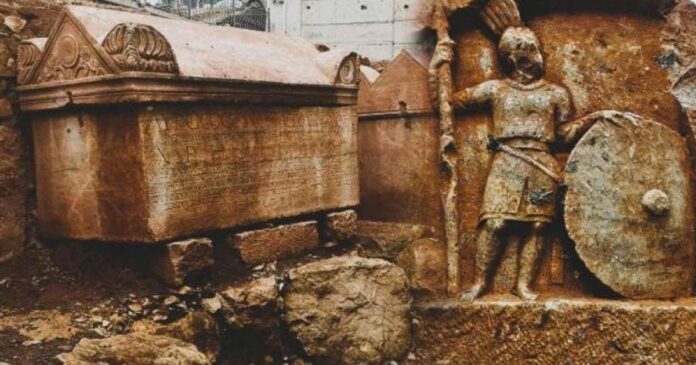Ancient Roman Tomb Unearthed in Western Turkey
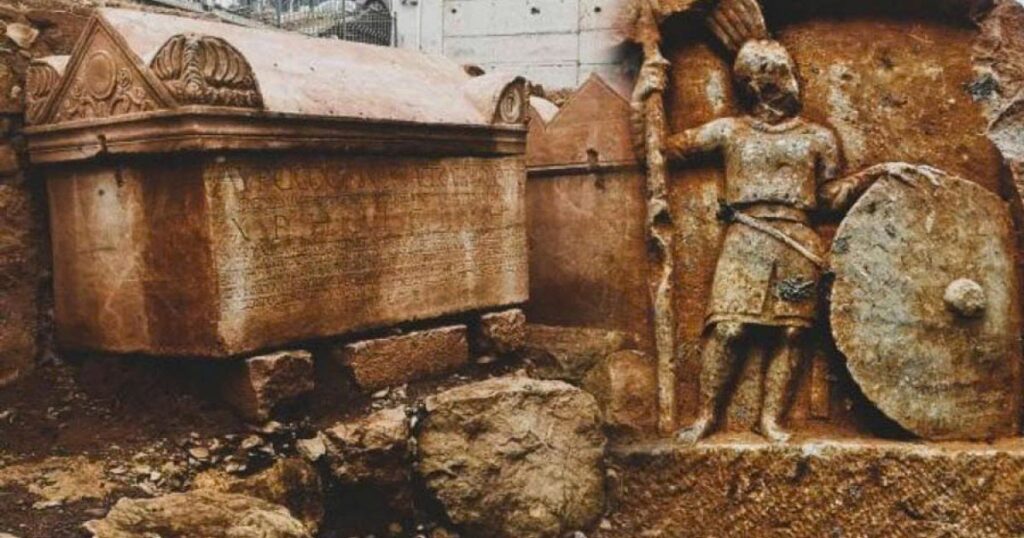
In a remarkable archaeological find, a Roman sarcophagus bearing the title of “Emperor’s Protector” has been discovered in Kocaeli province, western Turkey. This unprecedented discovery marks the first documented case of an emperor’s bodyguard in Anatolia.
The Excavation
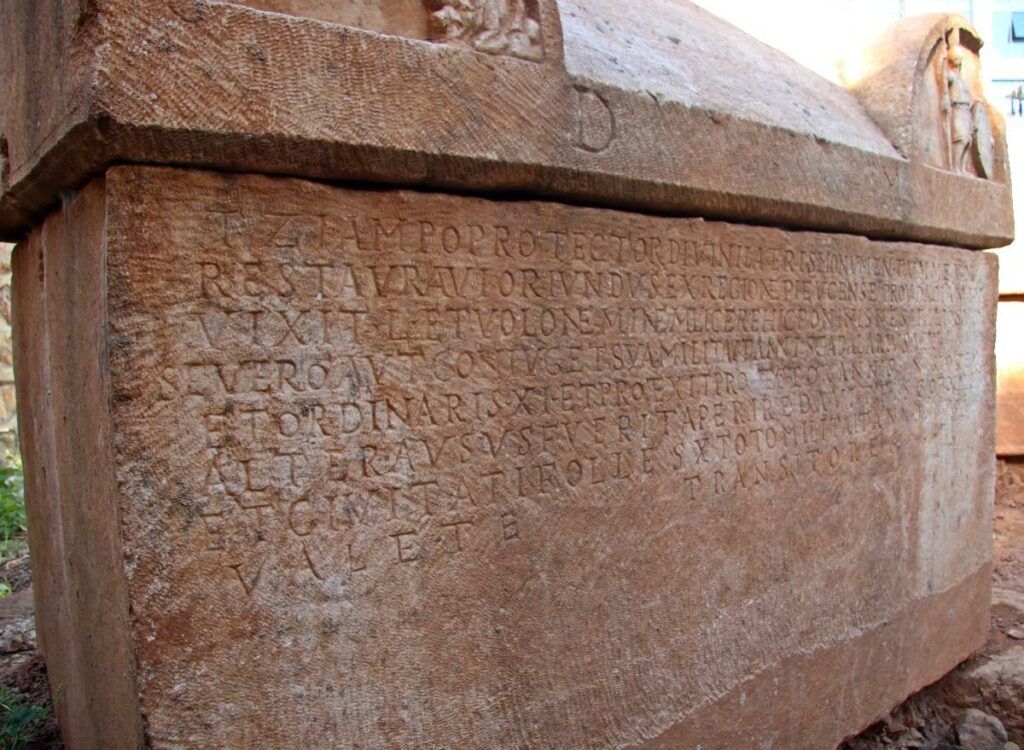
Between 2017 and 2019, during foundation construction work, archaeologists uncovered significant cultural remains. The Kocaeli Museum Directorate initiated rescue excavations, revealing 37 graves. Among these, one sarcophagus stood out with its Latin inscription identifying the occupant as an “Emperor’s Protector.”
Tziampo: Diocletian’s Bodyguard
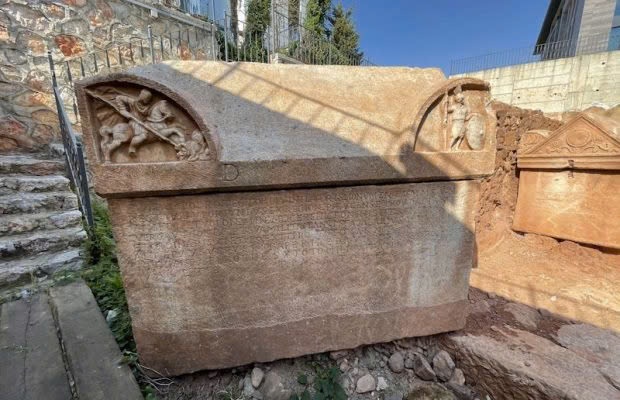
Scientific studies conducted by Associate Professor Hüseyin Sami Öztürk from Marmara University confirmed that the sarcophagus belonged to Tziampo, a bodyguard of Emperor Diocletian. The inscription on the tomb provides fascinating details about Tziampo’s life and military career:
- He lived for 50 years
- Served 9 years as a cavalry soldier
- Spent 11 years as an “ordinarius” (captain)
- Served 10 years as a protector
- Left strict instructions about who could be buried in his tomb
A Unique Find
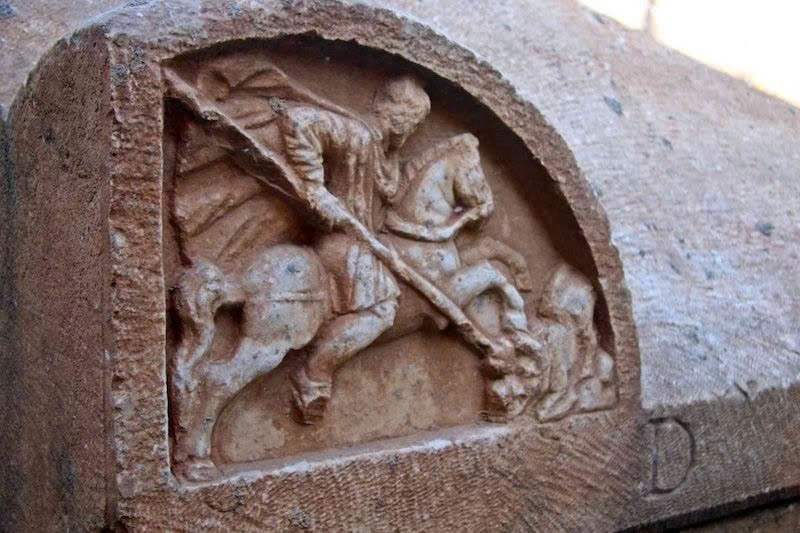
Serkan Geduk, Director of Kocaeli Museum, emphasized the global significance of this discovery. Unlike previous findings related to Roman emperor protectors, which were limited to inscriptions, the Tziampo Sarcophagus contains two skeletons and burial gifts, making it a world-first in its completeness.
Historical Significance
Tziampo, of Romanian origin, represents the eighth known “Emperor’s Protector” and the first documented in Anatolia. This elite title, created during Emperor Gallienus’ reign, was given to the most distinguished soldiers of the late Roman army.
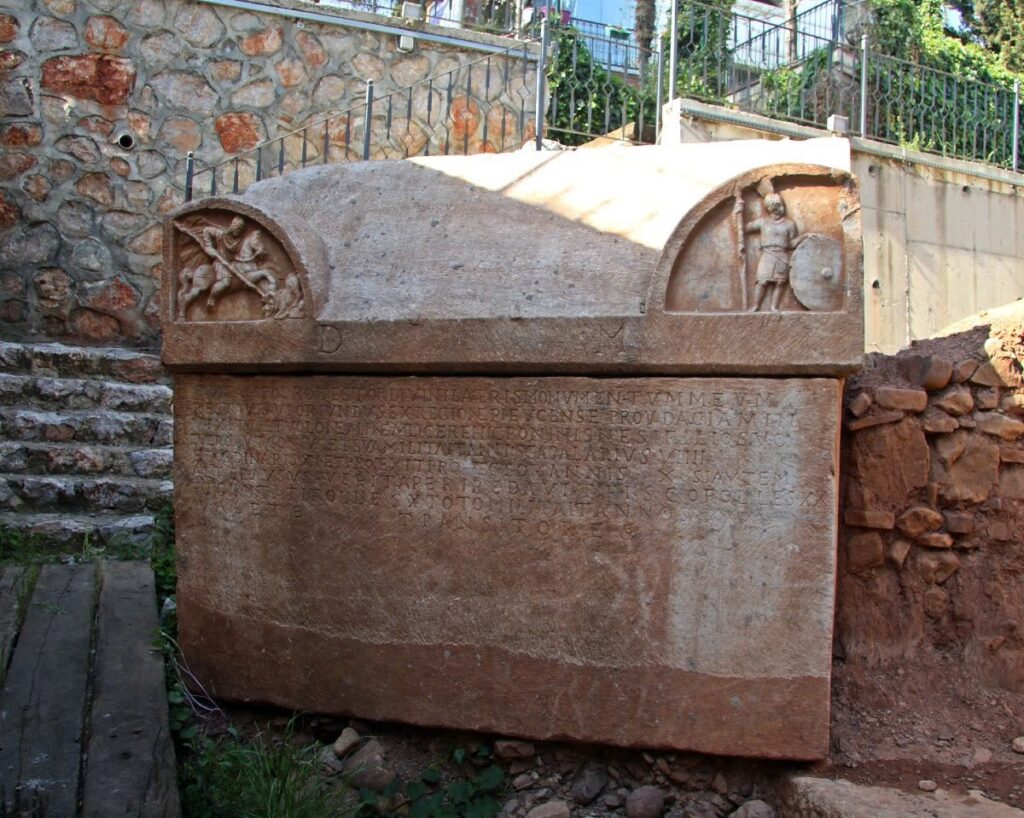
The Tziampo Sarcophagus not only expands our understanding of Roman military hierarchy but also provides invaluable insights into the lives and deaths of those who served at the highest levels of the Roman Empire
